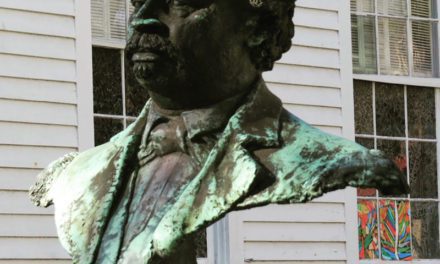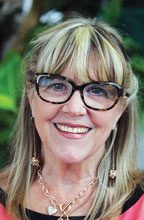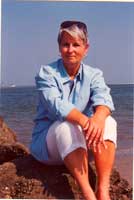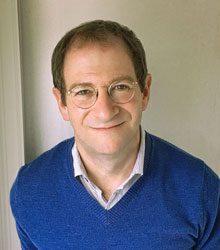 The Pat Conroy Literary Center will host the first Lowcountry Book Club Convention on Friday, December 15, in MacLean Hall (bldg. 12) on the Technical College of the Lowcountry’s Ribaut Road campus. An all-day event, 10:00 am 4:30 pm, this will be an opportunity for book club members – or anyone interested in joining or forming a book club – to meet, mingle, and exchange ideas about fostering, inspiring, and sustaining a community of fellow book lovers.
The Pat Conroy Literary Center will host the first Lowcountry Book Club Convention on Friday, December 15, in MacLean Hall (bldg. 12) on the Technical College of the Lowcountry’s Ribaut Road campus. An all-day event, 10:00 am 4:30 pm, this will be an opportunity for book club members – or anyone interested in joining or forming a book club – to meet, mingle, and exchange ideas about fostering, inspiring, and sustaining a community of fellow book lovers.
The convention will be keynoted by best-selling author Will Schwalbe (Books for Living and The End of Your Life Book Club) in conversation with Cassandra King Conroy.
We recently interviewed Will Schwalbe for the Porch Talk blog of the Pat Conroy Literary Center. The following is an excerpt from that interview.
LCW: Here on The Porch, we like to start with this question: Do you have a Pat Conroy story?
WS: I don’t have a Pat Conroy story that is much different from the Conroy story shared by millions of readers. I was never lucky enough to meet the author himself, but I was lucky enough to meet the extraordinary characters he created in his books. I remember exactly where I was when I first read The Great Santini and The Prince of Tides. Both, along with his other books, gave me the kind of reading experience I most crave: when I get so wrapped up in a book that my friends and family take their lives into their hands if they dare to disturb me! I felt exactly the same way when I came across Cassandra King’s work. I distinctly remember that I refused even to consider emptying the dishwasher or doing any other chore around our friends’ summer house until I finished reading The Sunday Wife.
LCW: When your mother was undergoing treatment for pancreatic cancer, which ultimately killed her, you formed a ‘book club’ of two. How did reading together help you both through that very difficult time?
WS: When we read we were no longer a sick person and a well person - but, rather, two readers (a mother and a son) doing what we had done all our lives. Reading was an escape but also a way of engaging with many of the issues that were most important but most difficult. We could use characters as proxies and talk about what they were thinking or feeling. Reading also gave me an opportunity to learn so much more from my mother while she was still here to teach me. And we always had something to look forward to: the next book and the next conversation.
LCW: You’re one of those folks for whom the old adage ‘reading is fundamental’ rings deeply true. In fact, you once called in sick to the office so you could finish reading a novel. What’s so important about reading? (In a nutshell. Haha.)
WS: I love reading - getting wrapped up in someone else’s stories and thoughts and opinions. It can be almost meditative. But I also look to books for inspiration. Reading helps me know what to do in my life and in the world. It also increases my capacity for empathy, which is a muscle that needs constant exercise or it atrophies. Reading widely is the best way I know to become more empathetic – when you walk miles in someone else’s shoes you can walk farther and with more purpose in your own. One thing we could all use: more empathy. I also love the randomness of reading and the excitement. You never know what you are going to find. Even in a book you think you aren’t loving you can come across a sentence or a thought that rocks your world.
LCW: In your latest book, you have some critical things to say about social media. Do you think reading a good book can serve as an antidote to immersion in the sturm und drang of social media?
WS: I have a new name for reading: Radical Listening. When you read, you need to be quiet, and consider someone else’s point of view. Kind of the opposite of social media! Also, books are not ephemeral. A certain amount of time passes between when they are written and published and when they reach the reader. The form encourages more thought and consideration. Social media often appeals to our lesser angels. We are more gossipy, quick-to-judge, and quick to gang up on one another when we are online. Also, concentration is a skill – and one we may be losing. Books remind us of the joy and importance of listening to one voice at a time without interruption.
LCW: When deciding what books to include in Books for Living, was it difficult to narrow down your list? Name a few great books that didn’t make the cut.
WS: With Books for Living, I wanted to show how any book can be a ‘book for living’ - so 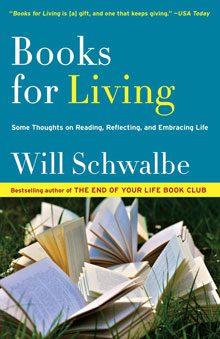 long as it finds you when you need it, or has a passage that speaks to you, or reminds you of something you need to remember, or helps you find your way in life, or just gives you pleasure. So I was purposefully somewhat arbitrary in my selection. Every book I included is there because I believe it has something to say to readers today. But I had endless choices. For example, I included 1984 when I could have easily written about Brave New World. Probably the greatest book that didn’t make the cut was Night by Elie Wiesel, but only because I wasn’t satisfied with what I wrote about that book – I didn’t feel I had gone deep enough or done it justice. My list of books that almost made the cut includes other great books like Stoner by John WIlliams and The Heart is a Lonely Hunter by Carson McCullers and The Street by Ann Petry, to name just three, but also includes all sorts of wonderful oddities that in some way spoke to me. Again, I thought it crucial was to convey that each reader comes up with her or his own list - and that anyone else’s list should simply be a springboard or inspiration for your own - and that each reader constantly adds to her or his list. Books for Living includes cookbooks (like Edna Lewis’s great The Taste of Country Cooking) and children’s books (like Wonder and Stuart Little) and poetry and thrillers (like The Girl on the Train). I make the case that each of these books has extraordinary lessons to offer us - but so do hundreds and thousands more.
long as it finds you when you need it, or has a passage that speaks to you, or reminds you of something you need to remember, or helps you find your way in life, or just gives you pleasure. So I was purposefully somewhat arbitrary in my selection. Every book I included is there because I believe it has something to say to readers today. But I had endless choices. For example, I included 1984 when I could have easily written about Brave New World. Probably the greatest book that didn’t make the cut was Night by Elie Wiesel, but only because I wasn’t satisfied with what I wrote about that book – I didn’t feel I had gone deep enough or done it justice. My list of books that almost made the cut includes other great books like Stoner by John WIlliams and The Heart is a Lonely Hunter by Carson McCullers and The Street by Ann Petry, to name just three, but also includes all sorts of wonderful oddities that in some way spoke to me. Again, I thought it crucial was to convey that each reader comes up with her or his own list - and that anyone else’s list should simply be a springboard or inspiration for your own - and that each reader constantly adds to her or his list. Books for Living includes cookbooks (like Edna Lewis’s great The Taste of Country Cooking) and children’s books (like Wonder and Stuart Little) and poetry and thrillers (like The Girl on the Train). I make the case that each of these books has extraordinary lessons to offer us - but so do hundreds and thousands more.
LCW: In The End of Life Book Club, you say your mother always read the end of a book first. I have a husband who does the same thing, and I simply can’t fathom it. I’m wondering - how important do YOU think it is to read from beginning to end?
WS: My mother would feel very vindicated by a recent study (and I suspect your husband will as well): It turns out that people who read the ends of books first enjoy them more. Perhaps that’s because they aren’t racing ahead to see what happens next, but can spend more time savoring the prose and the characters. So I pass no judgment! But I read for plot and hate spoiling it for myself having it spoiled for me. In both books I was sure never to give away any crucial plot points!
LCW: Do you think certain books resonate with us especially deeply - even change us -mainly because they came to us at just the right time in our lives?
WS: That’s one of the main themes in Books for Living. Yes, I think the universe often puts in your path just the book you need when you need it. And sometimes a person is key. One chapter of Books for Living is really a love letter to school librarians. In that chapter, I tell the story of Miss Locke, my high school librarian, who left for me on a library cart Giovanni’s Room by James Baldwin, a book that helped me imagine a life for myself that I could look forward to without dread. That book reached me at the exact moment I needed it most. I’ll always be grateful not just to James Baldwin but to Miss Locke as well for the gift of that book.
LCW: You and your mother formed a book club with two members. Have you been in other book clubs? If so, what do you think is the ‘right size’ for the best book club experience?
WS: I have been in other book clubs over the years; I love book clubs! I’m currently in a Book Club we call KidLit. We only read middle-grade books and young adult books. Some of the book club members have children; some don’t. There are women and men. All different professions. It’s a joy. There are such great books being written today for young people. I love staying current with what the young people in my life are reading. We recently read The Hate You Give by Angie Thomas. Next up is Philip Pullman’s new book. And our book club also reads classics of children’s literature, like Johnny Tremain by Esther Forbes. I think the perfect size for a book club is eight to twelve people (the latter or more if some people regularly can’t make it). But we’ve had good meetings with as few as five people.
LCW: What makes a great ‘book club’ book? Are some books better suited for group discussion than others?
WS: I’m the kind of book clubber who likes it when people share stories from their lives. I think a great book club book prompts and encourages that. I also think great book club selections have significant ambiguities. I love talking about The Reluctant Fundamentalist by Moshin Hamid or Eleven Hours by Pamela Erens for all sorts of reasons, but especially because people have very different ideas about what is actually going on at the very end of each of these books. Most great books have much to debate and discuss. I also like books that cause people to reexamine their preconceptions, their values, and our culture. One more thing: It’s good to follow a really long book club selection with a really short one. The occasional novella can do wonders for attendance. That said, in our club you can show up even if you haven’t read the book.
LCW: What’s your favorite book of 2017?
WS: I have many favorites from 2017 - but PACHINKO by Min Jin Lee is definitely one of them. Oh, and it also happens to be a great book club book!
Free and open to the public, the Lowcountry Book Club Convention is funded by a Literary Fast Track Grant from South Carolina Humanities and presented in partnership with the Technical College of the Lowcountry and the Friends of Beaufort County Library. For more information and a complete schedule of events, visit www.patconroyliterarycenter.org


